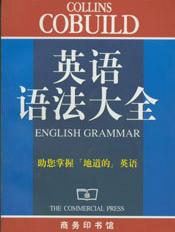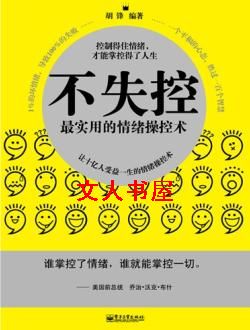牛津实用英语语法-第42章
按键盘上方向键 ← 或 → 可快速上下翻页,按键盘上的 Enter 键可回到本书目录页,按键盘上方向键 ↑ 可回到本页顶部!
————未阅读完?加入书签已便下次继续阅读!
警察命令每一辆车都停下来(接受检查)。他们一定是在查找逃犯。—What explosion?I didn't hear any.
—You must have heard it!The whole town heard it!
—什么爆炸声?我一点也没听见。
—你一定听见了!全城人都听见了!
He must have taken sleeping pills last night.He didn't wake up till lunch time.
他昨晚一定吃了安眠药。他一直到吃中午饭的时候才醒来。
—I waited under the clock!
—So did I,but I didn't see you!We must have been waiting under differ… ent clocks.
—我在大钟底下等的!
—我也是,可我没见到你!一定是在两个不同的钟底下等的。
—It was a head…on collision,but the drivers weren't hurt.
—They must have been wearing their seat belts.
—这次车祸中肇事车辆迎头相撞,但两个驾驶员都没伤着。
—他们肯定系了安全带了。
?
'Amber demo'
157 must与may/might的比较
?
它们之间的差别最好通过实例来了解:
(a)设想一个钥匙环上有三把钥匙,而且知道其中一把钥匙是开地下室的门的。可能选出一把钥匙说:
This may/might be the key.
可能就是这一把钥匙。(也许这是那把钥匙。)
但一连试了两把钥匙都没打开锁,就会拿起第三把钥匙说:
This must be the key.
一定是这把钥匙。(不存在别的选择了。)
(b)—I wonder why Tom hasn't answered my letter.
—He may/might be ill.
—我不知道汤姆为什么没给我回信。
—他可能生病了。(但也存在其他可能性:说不定他出门了,或者事情太忙无暇写信。)
但假设比尔从来没有人来访问他。如果急救车停在他门口,邻居们会说Bill must be ill(比尔一定得了病了)。这是对于急救车来到他家一事可能做出的唯一解释。
(c)同样,在谈到过去的动作时:
He may have e by train.
他也许是乘火车来的。(但也存在别的可能:他可能是乘出租汽车或公共汽车来的。)
但He must have e by taxi(他一定是乘出租汽车来的)意指他没有其他选择,不存在用其他办法进行这种旅行的可能。
?
'Amber demo'
158 have/had表示推断
?
这是美国人的用法,但有时英国人也这么用。
have/had主要是用在与to be连用时:
—There's a tall gred bird fishing in the river.
—It has to be/must be a heron.
—河里有一个大个的灰鸟在捕鱼。
—那一定是一只苍鹭。
had+to be可表示说话人对过去可能发生的事认为是肯定无疑的:
There was a knock on the door.It had to be Tom.
有人敲门。肯定是汤姆。(他肯定是汤姆。)
had+to be也可用来代替 must+完成式:
—I wonder who took the money.
—It had to be Tom./It must have been Tom.He's the only one who wasthere.
—我不知道谁把这钱拿去了。
—肯定是汤姆。当时只有他在那里。
但为了避免混淆,建议学生们还是尽量用must的各种形式。
?
'Amber demo'
159 can't和couldn't表示否定的推断
?
A 对现在事件的否定推断,可以用can't或couldn't加上动词be的现在式或者可以用can't/couldn't加上动词的进行式表示:
Child:Can I have some sweets?I'm hungry.
孩子:我可以吃些糖果吗?我饿了。
Mother:You can't/couldn't be hungry.You've just had dinner.
母亲:你不会饿的。你刚吃过饭。
Ann(looking through binoculars):An aeroplane is pulling up people fromthe boat!
安(透过望远镜):有一架飞机正把人们从小船吊到飞机上!
Tom:It can't/couldn't be an aeroplane.It must be a helicopter.
汤姆:不可能是一架飞机。一定是一架直升机。
—He says he's still reading The Turn of the Screw.
—He can't/couldn't still be reading it.I lent it to him ages ago and it's quite a short book.
—他说他还在读《螺丝在拧紧》。
—他不可能还在读那本书。我很久以前就把书借给他了,而且书也很薄。
B 对过去事件的否定推断,可以由can't/couldn't+动词的完成式或完成进行式表示:
—A man answered the phone.I suppose it was her husband.
—It can't/couldn't have been her husband.He's been deaf for ages.
—是一个男人接的电话。我想大概是她丈夫。
—不可能是她丈夫。他耳聋了许多年了。
—I took a Circle Line train to St Paul's.
—You can't/couldn't have taken the Circle Line.It doesn't go through St Paul's.You must have been on the Central Line.
—我乘地铁环线去了圣保罗大教堂。
—你不可能乘环形地铁。它不经过圣保罗大教堂。你一定是乘的中央线地铁。
如所表示的推断是过去做出来的或是由动词过去式引导的,就必须用couldn't:
She said I couldn't have e on the Cricle Line.
她说我不可能是乘地铁环线来的。
He said it couldn't be an areoplane.
他说那不可能是飞机。
否则can't或couldn't都可以使用。
?
'Amber demo'
160 will和should表示假设
?
A will用于表示对现在或过去行为的假设
will可与现在式(只限于表示未经预先考虑或计划的行为)或进行式或完成式连用:
Ring his home number.He'll be at home now.
拨他住宅号码。他现在会在家。(我肯定他在家。)
He'll be expecting a call from you.
他该在等你的电话。(我肯定他在等电话。)
He'll have finished his supper.
他该吃过晚饭了。(我肯定他吃过晚饭了。)
It's no use asking Tom;he won't know.
这事问汤姆没用,他不会知道。(我肯定他不知道。)
Will Bill be at the club now,do you think?
你觉得比尔现在会在俱乐部吗?(你认为他在吗?)
B should用于表示对现在或过去的行为的假设
should在此主要与现在式(仅限于表示未经预先考虑或计划的行为)的肯定式或否定式连用。有时也可与进行式或完成式连用:
The plane should be landing now.
现在飞机肯定在降落。(我认为飞机正在降落。)
The letter should have arrived by now.
信现在该到了。(我认为该到了。)
用should表示推断时没有用will表示推断时自信心强:
Tom should know the address.
汤姆应该知道地址。(我想汤姆知道。)
Tom will know the address.
汤姆会知道地址的。(我肯定他会知道的。)
He should have finished by now.
他现在该完成了。(我认为他该完成了。)
但是:
He'll have finished by now.
他现在想必完成了。(我肯定他完成了。)
should不用于表示使说话的人不高兴的推断:
Let's not go shopping now.The shops will be very crowded.
我们现在别去商店买东西了。商店这会儿人肯定特别多。(在此不必用should。)
但要表示与此相反的而使说话人高兴的推断时,两种形式都可以用:
Let's go shopping now.The shops will be/should be fairly empty.
我们去商店买东西吧。商店里人不会太多。
The shops won't be/shouldn't be too crowded.
商店里不会太拥挤。
C will和should也都可以表示对将来的假设:
He should/will have plenty of time to get to the station.
他该有足够的时间去火车站。
They shouldn't/won't have any difficulty in finding the house.
他们找这房子时大概不会有困难。
will+现在式表示对将来的推断时,不限于表示并非故意所做的动作。(参见第209节。)
D ought to 也可以与should一样在上述B和C中有相同的用法:
The plane ought to be/should be taking off in a minute.
飞机应马上起飞了。
但should是较常用的形式。
?
'Amber demo'
第十六章?助动词dare和used?
?
'Amber demo'
161 dare
?
A 在肯定式中,dare的变化与普通动词相同,即现在式为dare/dares,过去式为dared;但否定式和疑问式既可以像普通动词那样变化,也可以像助动词那样变化。换句话说,dare是半情态动词。
否定式:现在do/does not牋牋牋牋牋牋牋牋牋牋牋?dare dare/dares not
过去did not dare牋牋牋牋牋牋牋牋牋牋牋牋牋牋牋牋牋牋牋牋 dared not
疑问式:现在do you/does he dare?牋牋牋牋 dare you/he?
过去 did you/did he dare?牋牋牋牋牋牋牋牋牋牋牋 dared you/he?
通常更多使用它作为普通动词的结构。
B 接在dare后的不定式
do/did的否定式或疑问式理论上后面应当接带to的不定式,但实际上to常被省略:
He doesn't dare(to)say anything.
他什么也不敢说。
Did he dare(to)criticize my arrangements?
他敢批评我的安排吗?
dare I/he/you?等以及dare not这些形式后都接不带to的不定式:
Dare we interrupt?
我们敢插嘴吗?
They dared not move.
他们不敢动。
当dare的主语是nobody,anybody等词时,to可用可不用:
Nobody dared(to)speak.
没人敢说话。
C dare除了在I daresay这一说法外,不大用






